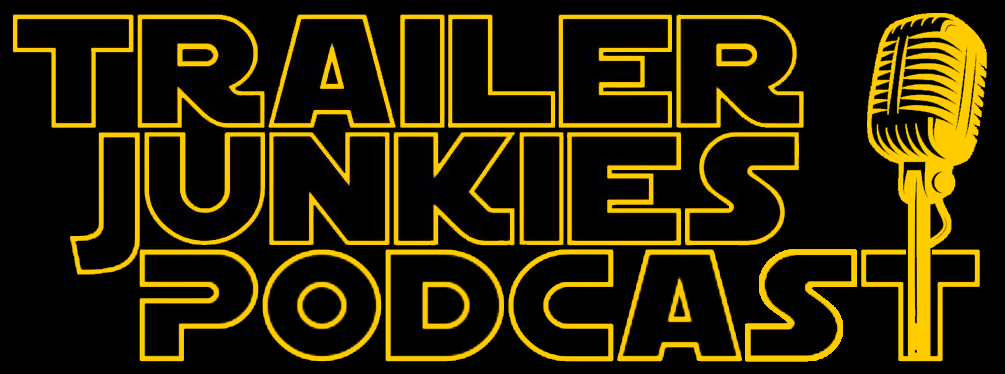Net Neutrality is Under Attack
/Company mergers and financial deals are often struck between major corporations. One of the more notable deals was between Internet giant, Comcast and the streaming video giant, Netflix. Not all financial deals are bad, but when they happen between content providers and the services that deliver that content to your home they can have adverse consequences.
The Wall Street Journal reported that Netflix agreed to pay Comcast for direct access to the Internet service provider’s (ISP’s) broadband network. The terms of the agreement were not made public, which means that neither company admitted that money was exchanged in the deal.
If money was exchanged in this agreement (you can read between the lines, can't you?) it is the first known example of a company paying an ISP to improve connection speeds.
Similar agreements have been made with other companies in the past without cash exchanging hands in the interest of improving performance for both companies. This is not an uncommon practice and has always been done without payment.
Internet advocacy groups are concerned that Comcast will pressure content creators, companies, and websites that require higher bandwidth to pay for preferential treatment.
Both Comcast contracts were agreed to shortly after a January 2014 ruling by a federal appeals court stating that federal regulators could not prevent these deals from happening. The Federal Communications Commission (FCC) argued that streaming deals between companies would give large, rich companies an unfair advantage in delivering content to consumers.
In the United States the Internet is not currently viewed as a utility and therefore, is not subject to regulations banning these arrangements. However, the Trump administration is pushing the FCC to regulate the Internet as a utility.
The argument for moving to a utility based service is that the Obama net neutrality regulations were so heavy handed that they stifled investment, stalled major upgrades to high-speed internet, and removed incentivizes for other innovations.
Whereas, the primary, and over simplified argument in favor of net neutrality is to treat all traffic as equal, so a small startup company with no money but a good idea can compete with the likes of Amazon, Google, and other Internet giants.
How The Internet Works
The Internet, since the beginning, has operated as a free and open medium that allows equal competition between big and small content providers. This open and neutral model is what allowed websites such as YouTube, Netflix, Amazon, and Facebook to develop and grow.
For the sake of this article I will use Comcast and Netflix in my simplified example of how the Internet works.
Comcast delivers bandwidth to your home, but there are backbone companies that provide Comcast its bandwidth. One such company is Cogent, and they sell transit to Netflix.
When Netflix purchases transit from Cogent, Cogent is responsible for distributing the Netflix traffic to all the other places on the Internet. Therefore, Cogent must exchange traffic with all other network providers as no one company controls the Internet.
Interent Transit
These connections are known as peering and it is a point-to-point connection that does not necessarily guarantee passage of traffic beyond the two companies involved. This occurs without any money exchanging hands.
When the two companies sharing information across networks are of similar size and influence it often benefits both. That is, Netflix pays Cogent to distribute its content while the content consumer pays companies such as Comcast to consume the media they request. One gets paid for sending while the other gets paid for receiving.
Network Neutrality Simplified
When you log onto the Internet you take for granted the services you are getting. You assume that whatever website you visit you will be provided with the same services and speeds as every other website. That’s true whether you stream videos from YouTube, listen to podcasts through iTunes, or you are reading this article on our website.
You also assume that you can attach all of your devices to your network such as computers, mobile phones, game consoles, and network attached storage (NAS) devices to enhance your online experience.
What makes all of this possible is Network Neutrality, which is the guiding principle that maintains a free and open Internet. A neutral Internet means that ISP’s may not discriminate and prioritize content from one provider over another. It guarantees a level playing field for everyone to include content creators, content providers, and other Internet technologies that deliver the websites you've come to enjoy.
This content is delivered to your home by a small number of cable and telephone companies that would love nothing more than to create a tiered system. If they get their way the telecom's will make their content and services, and the content and services of their partners a priority while everyone else would find themselves driving in the slow lane on the second tier.
If you pay to get your company in the top tier your site and services will run fast. If you don't, your site and services will be slowed to a crawl.
Imaging paying a fee to watch YouTube videos in high definition, or the music you enjoy from Spotify continually buffers more often than the music from iTunes or Pandora. Perhaps you enjoy reading Right leaning political commentary about the NRA, but a Left leaning media company sensors or blocks information about guns that they do not agree with.
These few ISP's believe that they should be able to charge website operators, application providers, and device manufactures a fee for the right to use their network. Those who don't make financial deals may be discriminated against with slower load times, lower quality video streams, longer buffer rates, and increased lag times. These companies may also block the content of a direct competitor, or slow them down so much so that their website becomes unusable.
Those in favor of dismantling Net Neutrality claim Net Neutrality is irrelevant, a solution in search of a problems, and that if blocking were to happen market forces would compel ISP's to correct course and reopen their networks.
In reality, many ISP's both in the United States and abroad have already violated the principles of Net Neutrality. If given their way they would most certainly block content from from competitors to promote their own products and services. This would be bad for two reasons.
- Prices would increase due to a lack of competition and
- Your service(s) would be terrible as you are stuck with a poor product that the blocking company is not obligated to improve as the result of muscling out the competition.
Here are some examples of Net Neutrality violations that have already occurred.
The Idea Behind The Open Internet
The Internet was founded on the principles of freedom. It is an open medium that fosters the fundamental idea that every website and every service should be treated equal. This is the underlying principle that allows me to write this article and compete directly with The New York Times, CNN, and thousands of other bloggers, websites, and news organizations.
The free and open model of the current Internet is what allows individuals the ability to create and deliver their content to millions of potential viewers without the barriers of the giant media companies. It allows you to search for information that is most relevant to you rather than search engines showing you results from companies that paid the most money to reach you. It is FREEDOM!
Inherent Problems Behind A Tiered Internet
Network Neutrality ensures innovation. If you have a good idea you can create an app, a website to promote that app, or other content that can compete on an equal playing field with major companies such as Amazon, YouTube, or HBO.
Anti-Net Neutrality proponents (i.e., large corporations, Republicans, and the Trump administration) want to crush this system and muscle entrepreneurs and startups out of direct competition. In other words, Net Neutrality is a threat to the status quo.
A tiered Internet would ensure that the content and services provided by their own companies, and their corporate partners would receive preferential treatment with faster speeds by providing customers with a better user experience.
This scenario is not just a David vs. Goliath scenario. It can affect other larger corporations as well. For example, Comcast owns NBC Universal, and is a direct competitor to ABC and CBS. These and many other direct competitors would need to pay large fees to Comcast to have their content delivered to your home without discrimination. It puts ABC, CBS, and all of Comcast's other competitors at a financial disadvantage.
And if Comcast is not able to reach a financial agreement with one of its competitors they can block their content. We already saw this happen when CBS blocked Time Warner subscribers from watching CBS content.
Why Does This Matter?
As the fall of Net Neutrality takes place the average user will likely not complain as their experience will be enhanced in the short-term. On the other hand, I see this as a way of baiting users to buy-in, which will keep them complacent causing our freedoms to be eroded even further.
The long-term effect will happen years later when we live in a less innovative world as the Internet will be run by major players who can afford to bring their products to market while the smaller startup, blogger, or podcaster will likely not even try as the hurdles are too high.
If this happened during the late '90's companies and websites you use everyday like Facebook, Netflix, Twitter, and YouTube would not have had the opportunity to compete, and therefore would never have been allowed to grow, and disrupt the status quo today. Instead, we would be stuck with Friendster, MySpace, and every other failed company that had more money at the time than the successful sites of today.
Another unintended consequence of a tiered Internet would be the increase in your monthly bill. If these deals are allowed to continue we will see a “Pay-Per-View” Internet where once free websites will begin charging their users fees.
Or websites with currently low fees such as Netflix will increase their prices to pay for streaming deals with ISP's. And services like Skype, FaceTime, or Google Hangouts will charge fees for video calls between grandparents and grandchildren on top of the monthly fee that is already charged by the ISP. You may also have to pay for more relevant searches in Google, Yahoo, or Bing as pay-to-play will be the name of the game.
The death of Net Neutrality is also a job killer as a neutral Internet is a job creator. There are countless companies, blogs, podcasts, startups, and others that were born out of an idea that was allowed to grow with a simple website, and grew into massive companies such as Google, Facebook, and Amazon (they were just a book reseller, remember?). The generations to come will have less opportunity for innovation all while the ISP’s and their corporate partners rake in even greater profits.
Finally, it’s quite possible in a future Internet you may not be able to read an article such as this because it has a dissenting point of view. You may not be able to find information from left or right political viewpoints if your ISP or one of their partners does not agree with the message.
A tiered Internet will crush today's Internet that brought you your favorite websites, apps, and services. You need to take a stand and contact Congress to make this an issue for future elections.
The recent content delivery agreement between Comcast and Netflix, and the Trump administration's repeal of the U.S. government's net neutrality rules late last year is evidence that the United States needs strong government leadership to maintain a free and open Internet. For those who argue that government legislation interferes with the free market and is unAmerican my response to you is that the future web without Net Neutrality will likely create censorship and increase discrimination.
In a government of the people, by the people, and for the people we need government regulation to prevent the major corporations from creating barriers to competition that favors incumbents.
A country where everyone is equal, but some are more equal than others is un-American, and the same can be said for a restricted Internet.
Resources
http://www.savetheinternet.com/sti-home
http://www.house.gov/representatives/find/
http://www.senate.gov/general/contact_information/senators_cfm.cfm

















